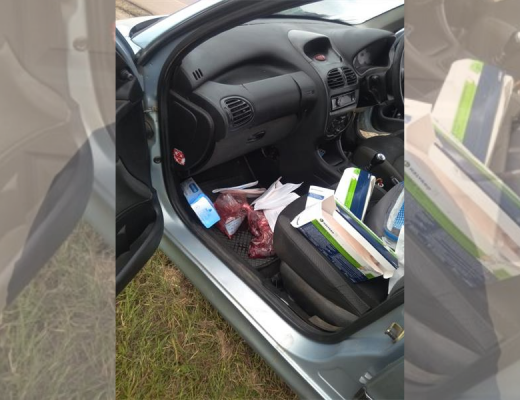Hopes for a coronavirus cure were raised today following reports that a patient was successfully treated using HIV and multiple sclerosis drugs in Spain.
Miguel Angel Benitez – who became the country’s first case last month – is said to have made a full recovery at the Virgen del Rocio Hospital in Seville.
The 62-year-old was treated with the antiretroviral drug lopinavir-ritonavir, sold under the brand name Kaletra, which has been used to treat HIV patients for a decade.
The tablets, known as protease inhibitor drugs, work by preventing the virus from multiplying in the blood.
Coronavirus becomes deadly when it is allowed to rapidly multiply in the lungs, kill off cells and cause pneumonia.
The highly contagious illness has infected more than 96,000 people and killed 3,300 people around the world, and is currently incurable.
Scientists hope to have developed, trialled and distributed a vaccine within 18 months.
Medics also injected Mr Benitez with beta interferons, proteins which stop reduce inflammation and are used to treat MS sufferers.
The Spanish hospital has been trialling the experimental treatment for weeks in its battle against COVID-19, which has so far infected 171 people in Spain.
Head of infectious diseases at Madrid’s Ramon y Cajal hospital, Santiago Moreno, said the coornaviurs was ‘very similar to HIV’.
He added: ‘This enzyme is essential for the virus to replicate. The combination of lopinavir and ritonavir inhibits and blocks HIV. The results that we have so far regarding its use against coronaviruses are encouraging.’
The news came as England’s Chief Medical Officer suggested that existing drugs could play a role in treating the currently incurable coronavirus.
Professor Chris Whitty told a press conference this morning: ‘Can we find drugs which we have got a licence for, we know the safety, they are widely available and which work against this virus?
‘The answer, I think, is going to be yes. They won’t necessarily be perfect drugs but they may be enough to improve the outcomes for the people in the most high-risk groups.’
But Spanish scientists have urged caution following Mr Benitez’s recovery, saying it does not mean all patients will respond to the treatment.
It comes after experts previously warned it would take at least 18 months to develop and distribute a coronavirus vaccine.
The first human trials are expected to begin next month at a university in London and pharmaceutical company in the US.
Scientists at Imperial College in the English capital have been trialling their attempt at a vaccine on animals since mid-February.
And they could move onto human trials – the last phase of development before a drug can be used – as soon as April.
Meanwhile, US pharmaceutical companies Moderna and Inovio have also said they plan to start their own human trials next month.
People who catch COVID-19 have to be isolated and wait for their body to fight off the illness, with medical help if they need it for symptoms or more serious infection.
A working vaccine could stop the bug in its tracks – some experts think it could become a permanent fixture in human society in the same way colds and flu are.
Imperial College has been working on its vaccine since the middle of January when Chinese scientists released the genetic information about the virus.
If low-level human trials are successful, the researchers will then move on to testing the vaccine in the real world where people are at risk of infection.
Passing all those tests could mean the vaccine is available to the public as early as next year.
US pharmaceutical company, Inovio, said it could have a million doses available by the end of the year and Moderna said it will also start human trials in April with aims of fast development.
Speaking on a podcast, Imperial College scientist Professor Robin Shattock said his team and others are creating vaccines ‘at a speed that’s never been realised before’.
He said: ‘Most vaccines would take five years in the discovery phase and at least one to two years to manufacture and get into clinical trials.
‘We’re trying to short-track that… we have the potential to get that in human trials within four months, so a two-year cycle in four months, which has never been done before.’
The scientists have developed the vaccine by studying the genes of the coronavirus and comparing it to SARS, an extremely similar virus which infected around 8,000 people in China in 2002/03.
They already knew which part of SARS the body’s immune system reacted to, so believe the same section of the coronavirus is the best one to target.
By putting only one part of the virus into a person – the part the body latches onto in an immune attack – the vaccine can trick the body into learning how to fight the coronavirus by making it familiar with that section and identifying it as an enemy.
Professor Shattock explained: ‘We’re able to identify the part of that [genetic] sequence that encodes the only protein that’s expressed on the surface of the virus.
‘So we take that section and we use that to make the vaccine… so we just get muscle cells to make that surface protein – no other viral proteins – and the immune system sees that as foreign so it immediately makes a robust response.’
Imperial College is not the only group of scientists working on a vaccine – at least 35 groups of experts around the world are working on fighting the virus.
Scientists at the University of Cambridge have pre-human tests ‘well under-way’, The Telegraph reports.
Oxford University researchers are also working on a vaccine, as well as the University of Queensland in Australia.
And more pharmaceutical companies are in on the action, too, with Novavax, Gilead, GlaxoSmithKline, Johnson & Johnson, Sanofi and Pfizer all working towards vaccines.
Source:DailyMail



.jpeg&w=60&q=100&h=60)








